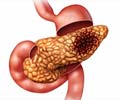The new study unveils how diets associated with obesity might elevate the susceptibility to neurodegenerative disorders.

Diet-induced glial insulin resistance impairs the clearance of neuronal debris in Drosophila brain
Go to source). This resistance hampers the removal of neuronal debris, elevating the risk of neurodegeneration. Published in the open-access journal PLOS Biology, the findings are poised to influence therapies aimed at mitigating the risk of neurodegenerative diseases.
How Obesity Fuels Neurodegenerative Disorders Using Fruit Flies?
Although obesity is known to be a risk factor for neurodegenerative disorders like Alzheimers disease and Parkinsons disease, exactly how one leads to the other remains a mystery. The new study focused on answering this question by taking advantage of the similarity between humans and fruit flies.TOP INSIGHT
High-sugar diets induce insulin resistance in glia, hindering neuronal debris clearance in fruit flies. This reveals how obesity-linked diets may heighten the risk of neurodegenerative disorders. #insulin #obesity #alzheimersdisease
Levels of the protein PI3k indicate how much a cell is able to respond to insulin. The researchers found that the high sugar diet led to reduced PI3k levels in glial cells, indicating insulin resistance. They also looked at the fly equivalent of microglia, called ensheathing glia, whose primary function is to remove neural debris, such as degenerating axons.
They observed that these glia had low levels of the protein Draper, indicating impaired function. Further tests revealed that artificial reduction of PI3k levels led to both insulin resistance and low Draper levels in ensheathing glia. Finally, they showed that after actually damaging olfactory neurons, the ensheathing glia could not remove the degenerating axons in the flies on the high sugar diet because their Draper levels did not increase.
Reference:
- Diet-induced glial insulin resistance impairs the clearance of neuronal debris in Drosophila brain - (https://journals.plos.org/plosbiology/article?id=10.1371/journal.pbio.3002359)
Source-Eurekalert
 MEDINDIA
MEDINDIA




 Email
Email










